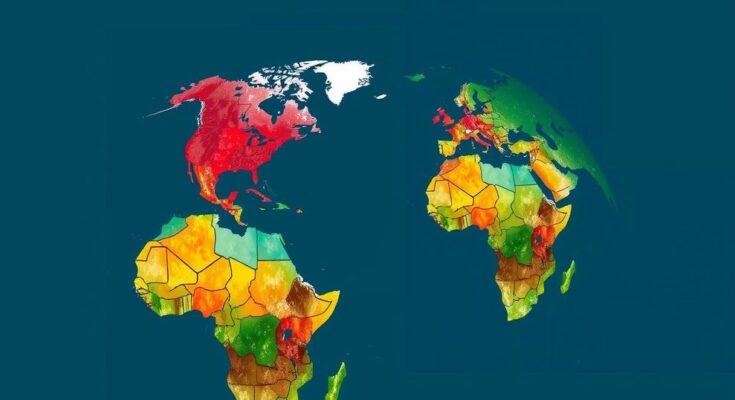Developing nations have condemned a $300 billion annual climate deal as insufficient, claiming it fails to address the magnitude of climate change impacts they face. Key representatives expressed dissatisfaction following lengthy negotiations, asserting that the proposed funding should have been much higher due to the severity of the crisis. Overall, the deal raises previous financial commitments but has not met the expectations of those it aims to assist.
A recently negotiated climate deal has drawn significant criticism from developing nations, which deem the $300 billion annual commitment from wealthier nations as insufficient in addressing the escalating impacts of climate change. Key representatives from affected countries expressed discontent following lengthy negotiations in Baku, Azerbaijan, where nearly 200 nations engaged in discussions that culminated in the agreed-upon financing pact. India’s delegate and other officials highlighted the failure of the deal to meet the severe financial requirements necessary for poorer nations facing climate-related challenges.
Following intense deliberations, the final deal aims to increase financial support for developing economies from the previously promised $100 billion to $300 billion by 2035. However, several representatives from developing nations articulated that this amount falls drastically short of the anticipated funding, which they argue should approach $500 billion annually. The criticism highlights ongoing disparities between developed and developing nations regarding accountability for climate change and adequate financial support for adaptation and mitigation efforts.
The topic of climate financing is critical as it addresses the financial commitments made by developed nations in support of developing countries facing severe consequences of climate change. The recent negotiations took place at an international climate summit, with representatives from nearly 200 countries involved in discussions that aim to provide financial resources to those most vulnerable to the climate crisis. Historical emissions from developed nations have placed immense pressure on poorer countries, which often lack the financial capabilities to implement necessary climate resilience strategies. The disparity in expectations for climate funding illustrates ongoing tensions in climate negotiations and the urgent need for a more equitable distribution of resources.
The recent climate agreement has been met with disappointment from developing nations, who view the financial commitments as grossly inadequate. While the deal increases promised funds to $300 billion by 2035, critics argue this falls well short of what is necessary to address the magnitude of climate challenges they face. The ongoing dialogue on climate finance highlights the complexities in reconciling the interests of developed and developing nations and the need for more substantial commitments to support those most affected by climate change.
Original Source: www.france24.com




